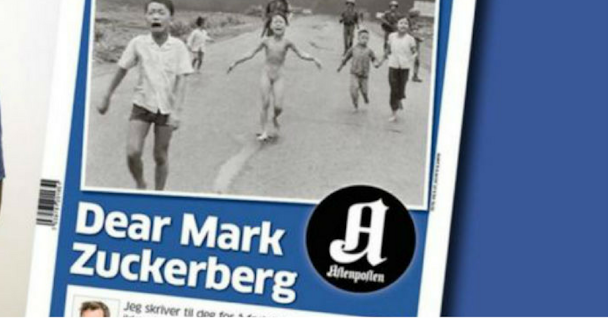Facebook eases content restrictions in bid to counter ‘censorship’ charges
Facebook has eased up on earlier restrictions that saw it censor content it deemed inappropriate for distribution on the social network; a change of stance following a row that saw it at loggerheads with media owners, and politicians across the globe.

The campaign to allow the publication of The Terror of War image on Facebook was championed by Norwegian newspaper Aftenposten
Facebook’s director of media partnerships for EMEA Patrick Walker said the company would now allow “more images that people find newsworthy,” speaking to the Association of Norwegian Editors, who invited him to explain the social network’s decisioning around the ‘Napalm Girl’ controversy earlier this year.
“We have made a number of policy changes after The Terror of War photo. We have improved our escalation process to ensure that controversial stories and images get surfaced more quickly," said Walker.
He went on to say that in the weeks ahead it would begin to allow more items that people find newsworthy “even if they might otherwise violate our standards," although he declined to offer further details when questioned by Reuters.
The newswire also reported that many attendees at the debate were left unconvinced by his revelations, with one attendee questioning whether the social network’s dominant position in the distribution of the world’s information was undermining one of the central tenets of democracy.
The row kicked off earlier this year when Facebook blocked the publication of the Pulitzer Prize-winning photo (see image above) due to the fact it depicted an unclothed child. Although it later reversed the decision following a row that saw Norway’s largest newspaper Aftenposten, plus the country’s prime minister Erna Solberg weigh-in on the controversy.
At the time of the U-turn Facebook released a statement claiming it would allow the uncensored publication of the photo on its network as the historical status of the image "outweighs the value of protecting the community by removal."
However, this was not the only instance where Facebook’s publishing strategy was called into question. The social network’s publication policies allegedly provoked impassioned debate internally, especially surrounding some of the political statements of US presidential candidate Donald Trump, and whether or not they qualified as “hate speech”.
Prior to the ‘Napalm Girl' controversy, Facebook came under fire from US politicians, with South Dakota senator John Thume penning an open letter to CEO Mark Zuckerberg demanding further information on its censorship policies following allegations that it suppresses the coverage of rightwing news in its Trending Topics section.
Source: Reuters

